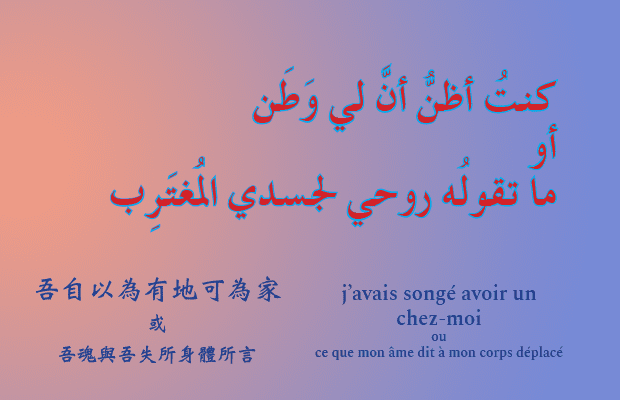The original version of this poem, written in Arabic and accompanied by an English translation, appears here.
吾自以為有地可為家
或
吾魂與吾失所身體所言
Chinese translation by Victor Ye
汝為何為歸屬感而渴望
汝為何渴望被人所見
若為何以手而絞吾頸
火烙入膚
其為屍體而憫
可引我舌
食於大眾
迫水入我肺
吾胸為何疼痛
餘過心擊
吾等人生不亦人乎
當吾輩屍體滿作街
j’avais songé avoir un chez-moi
ou
ce que mon âme dit à mon corps déplacé
French translation by Jessica Syed and Annie zhang
pourquoi tu désires être racinée
pourquoi tu désires être vue
pourquoi ils m’étranglent
et brûlent ma peau avec le feu
ils ont pitié de nos cadavres
mais ils arrachent nos langues,
les donnent aux mondes pour manger
noient nos poumons avec de l’eau
pourquoi mon coeur me fait mal
plus que je le sens battre
pourquoi nos vies ne sont humaines
que quand l’on voit nos corps dans la rue





